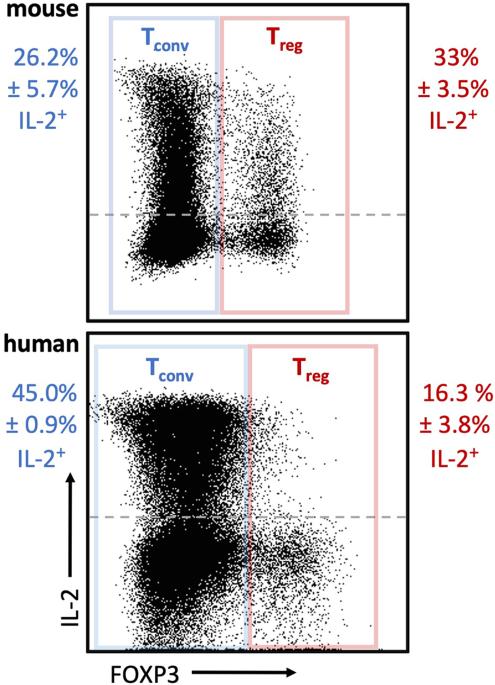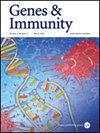“针对自身免疫中调节性T细胞的IL-2免疫疗法”。
IF 5
3区 医学
Q1 GENETICS & HEREDITY
引用次数: 0
摘要
FOXP3+调节性T细胞(Treg)对于免疫稳态和自身免疫性疾病的预防是必不可少的。白细胞介素-2(IL-2)信号传导在Treg生物学的各个方面都至关重要。IL-2信号传导缺陷的后果是Treg数量不足或功能障碍,从而导致人类和小鼠的自身免疫性疾病。免疫稳态的恢复和维持仍然是自身免疫领域的中心治疗目标。历史上,具有严重副作用的广泛免疫抑制药物已被用于治疗自身免疫性疾病或预防器官移植排斥反应。最近,在支持靶向天然免疫抑制机制的临床益处的临床试验中,离体扩增或体内刺激的Treg已被证明可诱导有效耐受。鉴于外源性IL-2在Treg稳态中的核心作用,药物开发中一个新的和有前景的焦点是基于IL-2的方法,用于体内靶向扩增Treg或增强其抑制活性。在这篇综述中,我们总结了IL-2在Treg生物学中的作用以及功能失调的IL-2信号通路的后果。然后,我们在临床试验中检查了基于IL-2的生物药物靶向Treg的疗效证据,特别关注候选治疗药物,并讨论了它们的局限性。本文章由计算机程序翻译,如有差异,请以英文原文为准。

IL-2 immunotherapy for targeting regulatory T cells in autoimmunity
FOXP3+ regulatory T cells (Treg) are indispensable for immune homoeostasis and for the prevention of autoimmune diseases. Interleukin-2 (IL-2) signalling is critical in all aspects of Treg biology. Consequences of defective IL-2 signalling are insufficient numbers or dysfunction of Treg and hence autoimmune disorders in human and mouse. The restoration and maintenance of immune homoeostasis remain central therapeutic aims in the field of autoimmunity. Historically, broadly immunosuppressive drugs with serious side-effects have been used for the treatment of autoimmune diseases or prevention of organ-transplant rejection. More recently, ex vivo expanded or in vivo stimulated Treg have been shown to induce effective tolerance in clinical trials supporting the clinical benefit of targeting natural immunosuppressive mechanisms. Given the central role of exogenous IL-2 in Treg homoeostasis, a new and promising focus in drug development are IL-2-based approaches for in vivo targeted expansion of Treg or for enhancement of their suppressive activity. In this review, we summarise the role of IL-2 in Treg biology and consequences of dysfunctional IL-2 signalling pathways. We then examine evidence of efficacy of IL-2-based biological drugs targeting Treg with specific focus on therapeutic candidates in clinical trials and discuss their limitations.
求助全文
通过发布文献求助,成功后即可免费获取论文全文。
去求助
来源期刊

Genes and immunity
医学-免疫学
CiteScore
8.90
自引率
4.00%
发文量
28
审稿时长
6-12 weeks
期刊介绍:
Genes & Immunity emphasizes studies investigating how genetic, genomic and functional variations affect immune cells and the immune system, and associated processes in the regulation of health and disease. It further highlights articles on the transcriptional and posttranslational control of gene products involved in signaling pathways regulating immune cells, and protective and destructive immune responses.
 求助内容:
求助内容: 应助结果提醒方式:
应助结果提醒方式:


